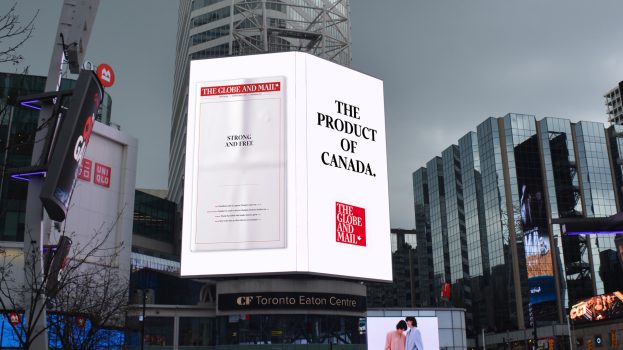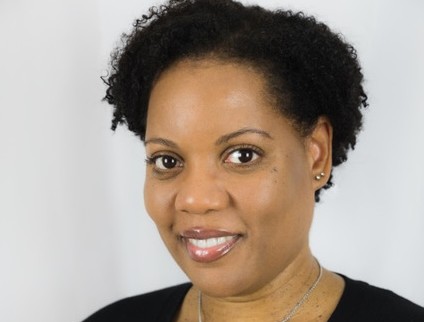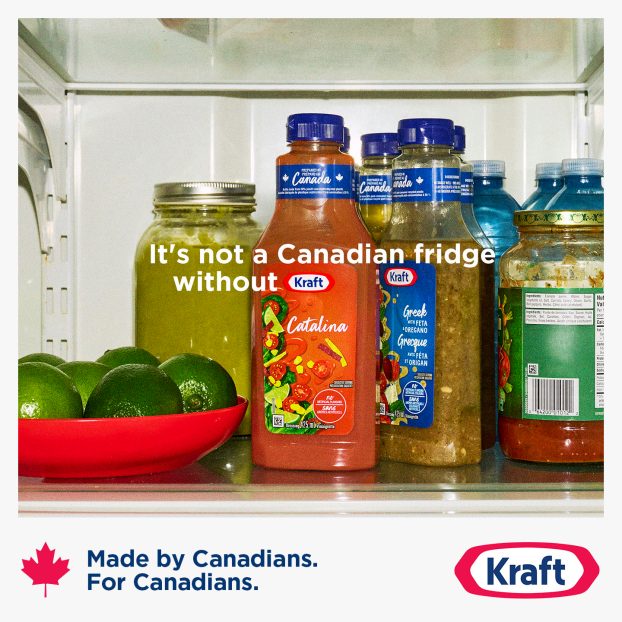Canadian media companies are dabbling in creative territory, as more and more global, American-based brands ask them to re-jig ad campaigns for local markets.
Genesis Media, for instance, now takes on 600 radio spots a year, according to its Toronto-based president and CEO Bruce Claassen. In fact, the firm has been overseeing the production of ads, which includes negotiating with studios and dealing with talent, for Pleasanton, Calif.-based food and drug retailer Safeway for two years now. While the basic creative originates in the U.S., Genesis, as the grocery chain’s ‘only agency in Canada,’ is often asked to fill in the ‘donut’ with local details, while the tag line and song remain unaltered.
And Genesis isn’t the only media company netting creative assignments these days. Scott Neslund, managing director of Starcom Worldwide in Toronto, which counts the Gap among its clients, says his firm has recently been asked to fill roles traditionally reserved for ad shops, in particular by U.S. clients which have no creative representation in this country. In 2001, Starcom has earned three such assignments – representing 10% of its clients – compared to none in the previous year.
Among Starcom’s increased responsibilities are ensuring work falls within the regulations set by Ad Standards Canada, dubbing spots into French and changing information in already existing creative so that it becomes relevant to the domestic market.
‘I think you see it more with North American companies, whose main creative is produced in the United States,’ says Neslund. ‘You really don’t need to develop a new campaign, you just need to tweak it, or change it for the Canadian marketplace in a way that would make sense based on what the brand is doing here.’
Neslund says the trend is just a sign of the times, since globalization has not only eased border-crossing for brands, but also made cultural differences less of an issue. He points to IBM, which recently ran a Japanese commercial in the United States. While the language was Japanese, viewers could still comprehend the spot.
Cost is also a driving factor, as is the client’s desire to maintain control of its brand image. Says Neslund: ‘You don’t want your business to have a creative look in one country, and not the same in another, unless there’s a good reason. You want to have the same brand essence in all your markets.’
Besides, it makes sense for a media firm to take on these subsequent duties, believes Claassen, particularly since, as is the case with Genesis and Safeway, it can already be quite intimate with a brand. In fact, Direct Company, the agency’s direct response division, already negotiates with printers to produce Safeway’s 160 million flyers annually. ‘We’re aware of what they’re doing as merchants, so the creative role we play is very similar to what we do with media, but on the production end instead. We’re still getting the best rates, negotiating and handling the money,’ he says. ‘It’s easier for them. We already handle 85% of the business already, so why not the last 15%?’
David Crichton, partner and creative director at Toronto-based agency The Crichton Kim-Kirkland Company, says the situation doesn’t bother him, particularly since the work involved isn’t very ‘creative.’ However, Crichton, who has completed stints at J. Walter Thompson and Roche Macaulay & Partners in the past, does think his larger counterparts will have more of a problem with it. ‘I don’t believe it behooves any agency to take on that [kind of] work, unless of course, it’s about a quick buck,’ he says. ‘It’s going to be bigger agencies that will cry about globalization sucking ad dollars out of Canada.’
For his part, Frank Palmer, CEO of Vancouver-based Palmer Jarvis DDB, isn’t fazed by the trend, particularly in these difficult economic times, when a lot of companies are offering to do more in order to increase revenue. This type of adaptive work makes up less than 5% of PJDDB’s business, but Palmer believes it might have more impact on multinational agencies which likely have a higher percentage.
However, he warns that media companies aren’t experts in the creative field. ‘I think clients would be better off to go to an agency or production house, because media companies don’t know [this area,]’ he says. ‘It’s like a heart doctor versus a brain doctor.’























